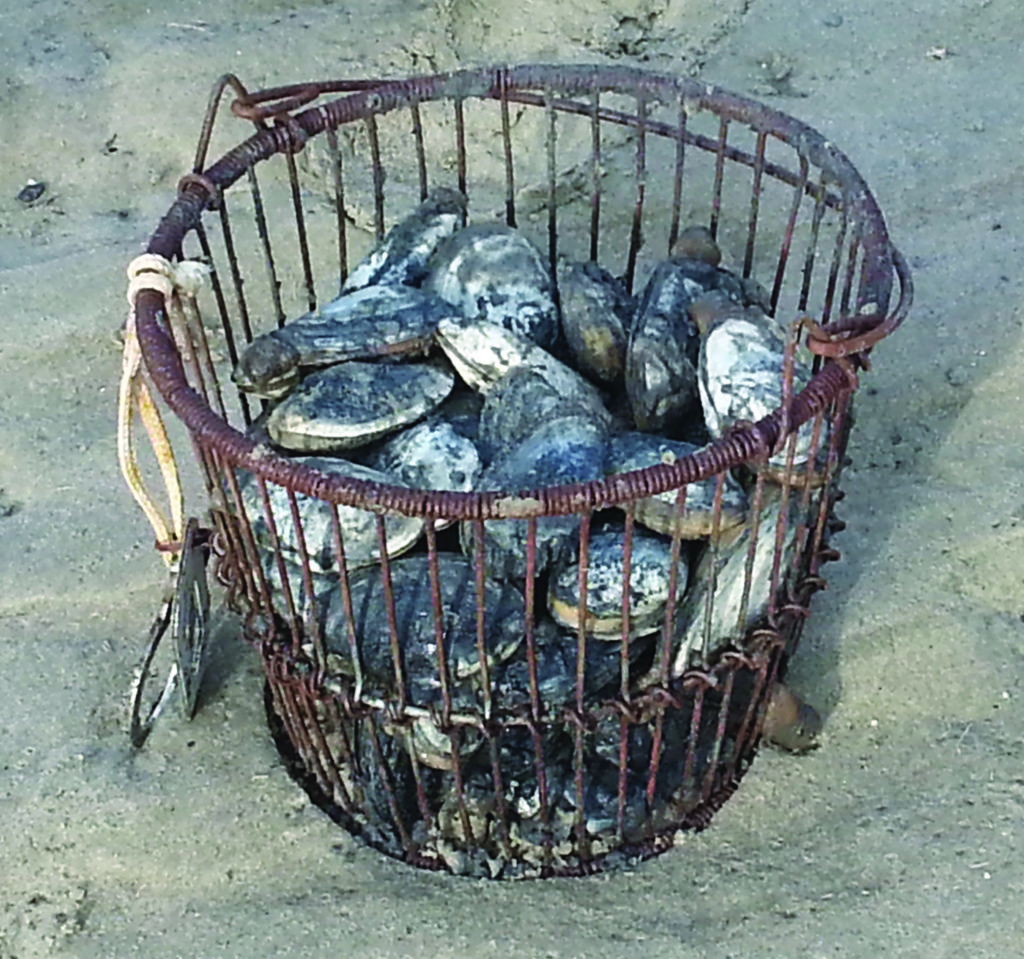 On Monday, November 1, 2021, more than 50 people turned out for the NSRWA Recreational Shellfish Harvesting Sit-In. It was a beautiful day at Driftway Conservation Park in Scituate. November 1st is typically the opening day for the 606 acres of shellfish beds in the North and South Rivers to be opened for recreational harvest, but this year for the second year in a row, the shellfish beds were not opened. NSRWA Executive Director Samantha Woods spoke about the organization’s multi-decadal efforts to reopen the shellfish beds on the North and South Rivers to recreational shellfish harvesting only to have the beds closed again now due to new federal regulations. Brad White and David Dauphinee spoke on the history and tradition of shellfishing, and their memories of doing it with their families. Representative Patrick Kearney attended the event and spoke of his support for the reopening to recreational harvest.
On Monday, November 1, 2021, more than 50 people turned out for the NSRWA Recreational Shellfish Harvesting Sit-In. It was a beautiful day at Driftway Conservation Park in Scituate. November 1st is typically the opening day for the 606 acres of shellfish beds in the North and South Rivers to be opened for recreational harvest, but this year for the second year in a row, the shellfish beds were not opened. NSRWA Executive Director Samantha Woods spoke about the organization’s multi-decadal efforts to reopen the shellfish beds on the North and South Rivers to recreational shellfish harvesting only to have the beds closed again now due to new federal regulations. Brad White and David Dauphinee spoke on the history and tradition of shellfishing, and their memories of doing it with their families. Representative Patrick Kearney attended the event and spoke of his support for the reopening to recreational harvest.
The sit-in was done to raise awareness and put pressure on the state to re-evaluate whether or not the recreational shellfish regulations could be separated from the commercial regulations – much like we have different rules for commercial vs recreational fishing. On Wednesday, November 3rd – two days after our shellfish sit-in – we received a letter from Commissioner of Fish and Game Ronald Amidon reconfirming the state’s stance that these two activities could not legally be separated. We are evaluating the letter from the state and will provide an update on our strategy to reopen these beds and ensure that any known public health issues are addressed.
We believe that the science used thus far in closing the beds has been grossly over simplified and assumes absolute worst-case scenarios are happening all the time (no treatment and no tidal flushing), is not representative of our rivers flushing characteristics (they flush twice daily), the type of shellfish that are harvested in these rivers (soft shelled clams or “steamers ” which are cooked), or the effectiveness of the Scituate Wastewater Treatment plant at removing contaminants (the plant uses UV radiation which kills bacteria and viruses). Any failure in the treatment process resulting in effluent release will require public notification within 2 hours, a legislative victory for NSRWA. Given all the risk mitigation we feel these regulations are overly risk-averse and that recreational shellfishing should not be held to these commercial standards in our rivers. If legally there is no way to separate the commercial and recreational regulations, then after evaluating the tidal flushing and quality of the wastewater effluent, if there are still concerns, then we feel the answer is not to stop the public from using their natural resources but rather to insist that the treatment plant remove any contaminants of concern.
Please help us raise awareness about the issue and lend your support by doing the following:
Read more about the closing of the shellfish beds.
Sign the petition to support re-open the shellfish beds for recreational shellfish harvesting.
Share your comments and photos on what shellfish harvesting means to you.
Stay informed by signing up for the NSRWA bi-weekly E-newsletter.


